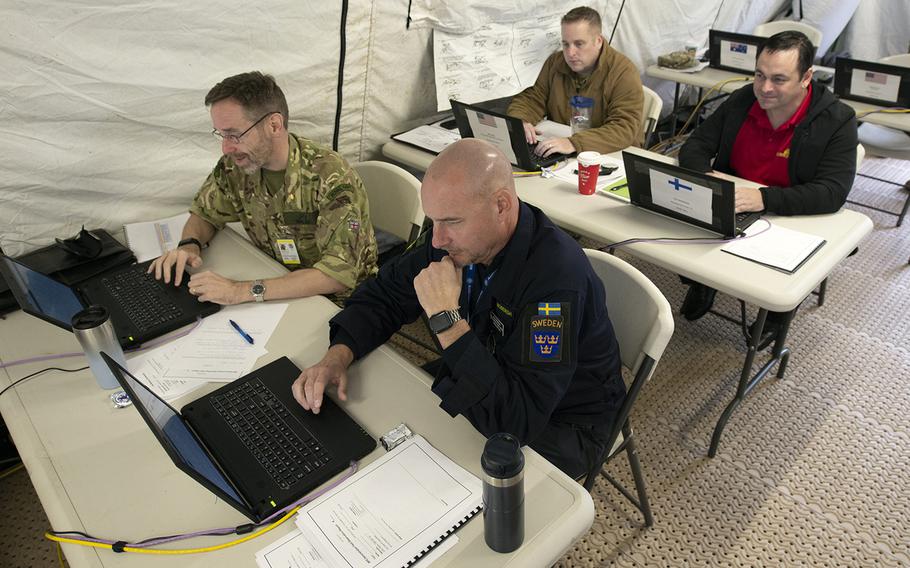
U.S. and foreign military personnel participate in a computer network demonstration in Suffolk, Va., in 2011. The network allows the U.S. and partners to share low-level classified information. A research report released in March says that a lot of information is being needlessly classified, which may hurt collaboration with partner forces. (EJ Hersom/Department of Defense)
Combat operations and cooperation with allied forces may be hindered by the U.S. government’s penchant for overclassifying information, a study by a nonpartisan research group has found.
Overclassification has hobbled collaboration on security issues in space, protected wasteful military programs and limited America’s innovation edge over its adversaries, the Nonproliferation Policy Education Center wrote this month in its 125-page study of governmental secrecy.
“What happens when American soldiers fighting overseas can’t share imagery with allied soldiers to plan a coordinated assault? Or what unfolds when military supplies or intelligence information can’t be transferred to friendly states whose help is critical to deter or fight Russia or China?” the report asks.
“The answers to these questions are all the same: America’s national security takes a hit.”
The military’s tendency to classify documents and withhold information in general can reach the level of absurdity, according to the report, which offered several examples.
Among the findings were “American troops having to buy their own imagery from private firms to be able to use and share what they need to fight with their allied armed compatriots on battlefields,” according to the report, citing events it said happened in Afghanistan.
The report also highlighted a working group meeting in 2020 in which the Pentagon said it might be forced to classify the number of troops infected with the coronavirus as those numbers were spiking.
At about the same time, the former head of the Space Force, Gen. John Raymond, reported being banned from mentioning the name of spy satellites the media routinely writes about, the report said.
The government has more than 2,000 security classification guidebooks and roughly 1,400 original classification authorities, which adds up to an unworkable situation in a fast-paced decision-making environment, according to the group.
“These numbers, and the impossibility of mastering their guidance, is a key reason so many government staff simply press the classified button — it’s safe, it’s easy and it takes little or no thought,” the report said.
At times, the motive for keeping things classified may be to “save one’s professional hide,” which can come at the cost of the country’s interests, according to the analysis.
The report was drawn from a dozen working group sessions that included numerous government officials and outside experts, according to the Arlington, Va.-based group.
It offered dozens of recommendations, including having the White House update an executive order that would enhance transparency. Another was for Congress to fund and authorize dedicated staff to a declassification board it created 20 years ago.
“So far it hasn’t,” the report said. “It was on the cusp of doing so last year. It needs to get on with this.”